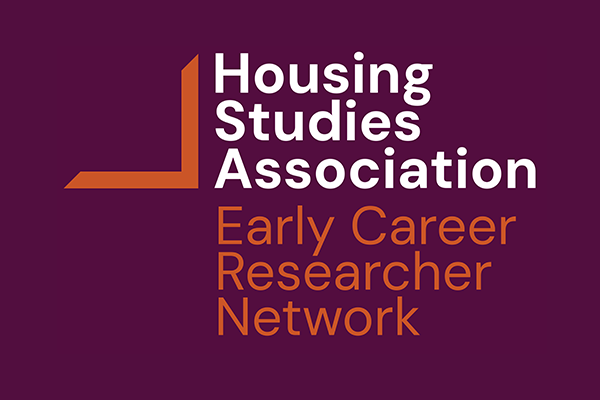This blog is a tribute to a friend of mine, who will remain anonymous, who passed away on 27th August 2023. She referred to herself as an “itinerant landless peasant.” She had radical and inspiring ideas about land ownership. She encouraged me to look further into the relevance of historical land inequality when I first started my research.
“I don’t believe that you can own land. And I think it’s totally out of order to even say that you can. They’ve taken our means of support away (land), which they don’t have a right to, and they’re expecting us to pay for it…it is theft.”
- An itinerant landless peasant
Land Inequality and Concentrated Wealth: An Elephant in the Room?
This year the theme for our annual HSA conference was “Futures of Housing Justice” and an array of injustices were highlighted. For many of us, much of the data presented was somewhat harrowing as we see many inequalities – and the suffering that comes with it – increasing, while also hearing reports of a “lack of resource” available to remedy such issues. However, what seems to remain largely “an elephant in the room” among many of these discussions, is the concentration of wealth and property in the hands of a few in the UK. It appears that on the whole, as a society (and even as housing experts), we perhaps just accept it as “normal” or “unchangeable” as we struggle for the shrinking resources to meet basic human needs. In this respect, this perhaps represents an example of what Sociologist Eviatar Zerubavel (2006) calls “open secrets.” Indeed, our silences as academics and other housing experts are also shaped by political and social forces that we perhaps need to pay more attention to.
While many housing scholars and practitioners report a continuation (and magnification) of the consequences of austerity politics, housing poverty and discrimination, much land and resource does exist in the UK. It is just not accessible to most of us. Interestingly, Alex Diner reported in the first plenary session that while new tax reforms had meant that many homeowners were facing higher interest rates, buy to let mortgages had slightly improved, the number of additional properties bought by landlords increased, and overseas investors with large portfolios were gaining leverage via the weak pound. Meanwhile, much land in the UK has remained in the same hands for a very long time: Guy Shrubshole (2019) – a researcher and activist - has calculated that 30% of half of England’s land that is accounted for is still owned by the aristocracy and gentry.
Shrubshole argues that much unregistered land – which he estimates makes up an additional 17% of this area - is also likely to be owned by this minuscule group, as these lands are likely to have remained in the same families for centuries before the land registry was even developed over 150 years ago, and therefore much before the Land Registration Act 2002 made it compulsory that any land sold, gifted or mortgaged must be registered. In the UK, we are denied open access to our Land Registry, despite the fact that it is a public body funded by UK tax payers. As a result, much wealth and land inequality remains hidden, enabling international money laundering and preventing smaller housebuilders and local communities from having the information that they need to develop suitable land in their area (Monbiot et al, 2019). Because this data must be bought, large companies are effectively in a better position to obtain this information.
It is also worth considering here that the ancestors of many of the aristocracy and gentry that still horde much of the country’s land would have likely been “enclosure propagandists” in the eighteenth century, who promoted (and hugely benefitted from) a process of the mass privatisation of land (Thompson, 1963: in Tyler, 2020:59). The enclosures have been referred to as “the forcible theft of land in Britain” (Shrubshole, 2019) as people’s capacity to provide for themselves was effectively withdrawn (Linebaugh, 2014) constituting what Marx (1887 in: Tyler, 2020: 60-62) considered to be a key way of forcing people – who were at risk of being branded as criminal vagabonds at the time - to sell themselves as workers to landowners for low wages. Brett Christophers (2018) identifies a similar process, which he called “The New Enclosure”, when estimating that the state has continued to sell approximately 10% of the land area of Britain to the private sector since 1979, making providing for basic human rights more difficult: whether it be building hospitals or social housing. While privatisation regularly appears in discussions of housing inequality, land inequality – and the origins of much excessive land ownership – often remains the elephant.
This requires further exploration and discussion among housing experts when speaking about the future of housing justice. We need to pay more attention to the ways in which both the UK policy context and our silences around land inequality appear to be geared towards helping the super-rich get richer at the expense of everyone else.
References:
Christophers, B. (2018) The New Enclosure: The Appropriation of Public Land in Neoliberal Britain. London: Verso
Marx, K. (1973) Capital: A Critique of Political Economy. Moscow: Progress Publishers
Monbiot, G., Grey, R., Kenny, T., Macflarane, L., Powell-Smith, A., Shrubshole, G. & Stratford, B. (2019) Land for The Many: Changing The Way Our Fundamental Asset is Used, Owned and Governed. London: Labour Party
Shrubshole, G. (2019) Who Owns England? How We Lost Our Green & Pleasant Land and How to Take it Back. London: William Collins
Thompson, E. (1963) The Making of the English Working Class. New York: Vintage
Tyler, I. (2020) Stigma: The Machinery of Inequality. London: Zed Books
Zerubavel, E. (2006) The Elephant in the Room: Silence and Denial in Everyday Life. Oxford: Oxford University Press
Rhiannon Craft is a part-time PhD student at Cardiff University and is near completion. She is a sociologist and activist who carried out her ethnographic work as a vehicle dweller among vehicle dwellers. Her presentation at the 2023 HSA Conference provided an update on a historical process of increasing criminalisation of people providing their own housing in vehicles in the UK. Many vehicle dwellers make use of disused land having lost access to common land and in the absence of authorised stopping places. Those who buy their own land are often denied planning permission. The treatment of these groups often evokes discussions of land inequality, bringing into question ideas about land ownership and access to land.






